-
Written by Christopher Van Mossevelde
Head of Content at Funnel, Chris has 20+ years of experience in marketing and communications.
The pressure to prove cross-channel attribution and tie spend to business growth is rising. At the same time, third-party signals are fading because of black box algorithms and privacy restrictions.
In response, marketers are turning to first-party data and moving beyond last-click attribution to see what actually drives revenue. In fact, according to the State of Data 2024 report published by IAB, 76% of brands and agencies are investing or planning to invest in new forms of multi-touch attribution because of legislation and signal loss.
Performance marketing tools are at the heart of the battle to keep sight of impact while the sun sets on cookies and third-party data. Modern performance marketing software analyzes privacy-friendly data sources and uses contextual targeting, which doesn’t rely on individual user data. And with a unified platform that powers all your performance marketing workflows, you can continue optimizing funnels and effectively targeting ads while staying on the right side of privacy laws.
This guide breaks down the best performance marketing tools in 2026 by job to be done, shows how they fit together and explains the impact of using an intelligence layer that unifies all your data in one platform.
What is a performance marketing tool?
A performance marketing tool is software that tracks measurable outcomes across channels, such as clicks, conversions and cost per acquisition, and ties spend to results.
With the major issues surrounding data loss today, such as cookie depreciation and ad platforms overreporting their impact, and the need for cross-channel truth, performance marketers require a different set of tools. As such, the performance marketing software ecosystem has been evolving.
Many standalone tools have sprung up to tackle attribution, but most either specialize narrowly (e.g., ecommerce only, or call tracking) or force teams to manage another silo of data. What marketers need is attribution that’s unified with the rest of their performance data.
A marketing intelligence platform that brings your data together and normalizes it, lets you compare campaign performance across platforms, adjust budgets so money goes where it performs and make changes at the pace of results.
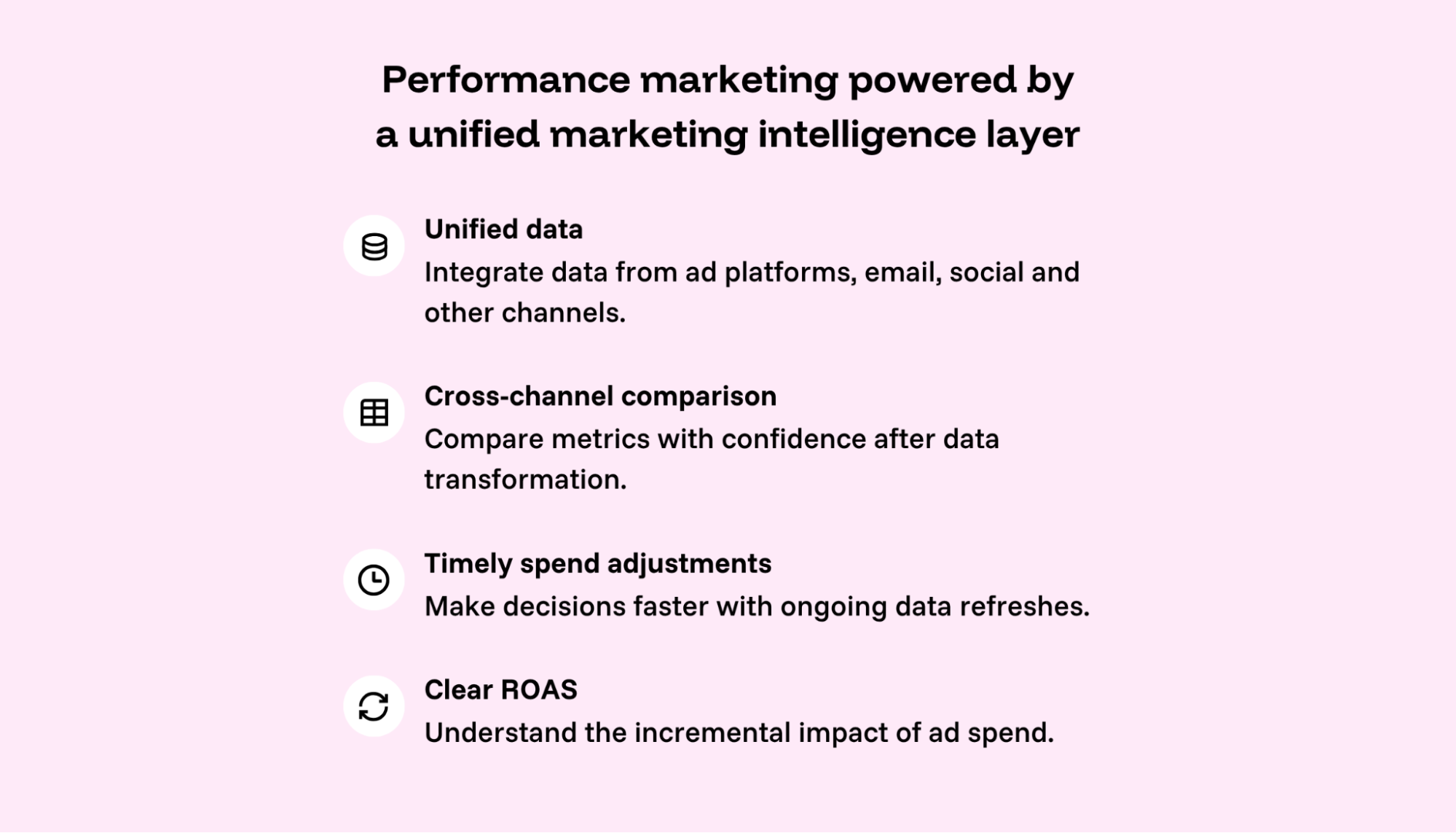
But connected data alone isn’t enough. Turning insight into action takes more than a dashboard; it requires a shared system that links measurement, reporting and decision-making.
That’s the role of a unified marketing intelligence layer: turning complexity into clarity and helping marketers understand how each channel contributes to growth. Funnel supports that process by unifying the data and tools teams rely on every day, so decisions are based on understanding, not assumptions.
How is performance marketing measured?
Performance marketing efforts are measured by clear KPIs: conversion rate, cost per acquisition and lifetime value. Marketing analytics tools track traffic quality, engagement and funnel progression, so you can see which campaigns attract the right visitors and where they drop off.
Attribution connects touchpoints across the journey, including impressions, clicks, site visits, calls and orders, so credit reflects how channels work together rather than the last click alone. Effective measurement blends data from search, social, email and more. Then, attribution and tests guide budget toward incremental gains.
Teams monitor ROAS alongside revenue contribution by channel and audience segment. The goal is to tie every initiative to outcomes the business cares about, from qualified leads to sales and customers, and use those insights to spend the next dollar.
The best performance marketing tools for 2026
From analytics and attribution to experimentation, partnerships, audience insights and visualization, performance marketing tools help teams measure, test and optimize every part of the funnel.
And, how can you prevent data siloes with all these tools and stay focused on business impact? With one marketing intelligence platform to bind them all and power your performance marketing workflows.
Let’s dive into the best tools for performance marketers, including unified marketing intelligence.
Attribution and analytics tools
Attribution and analytics are the heartbeat of performance. Signal loss and platform bias make it harder to trust a single source, so teams blend first-party data, independent measurement and clear export paths into BI.
Triple Whale – best for ecommerce attribution and analytics
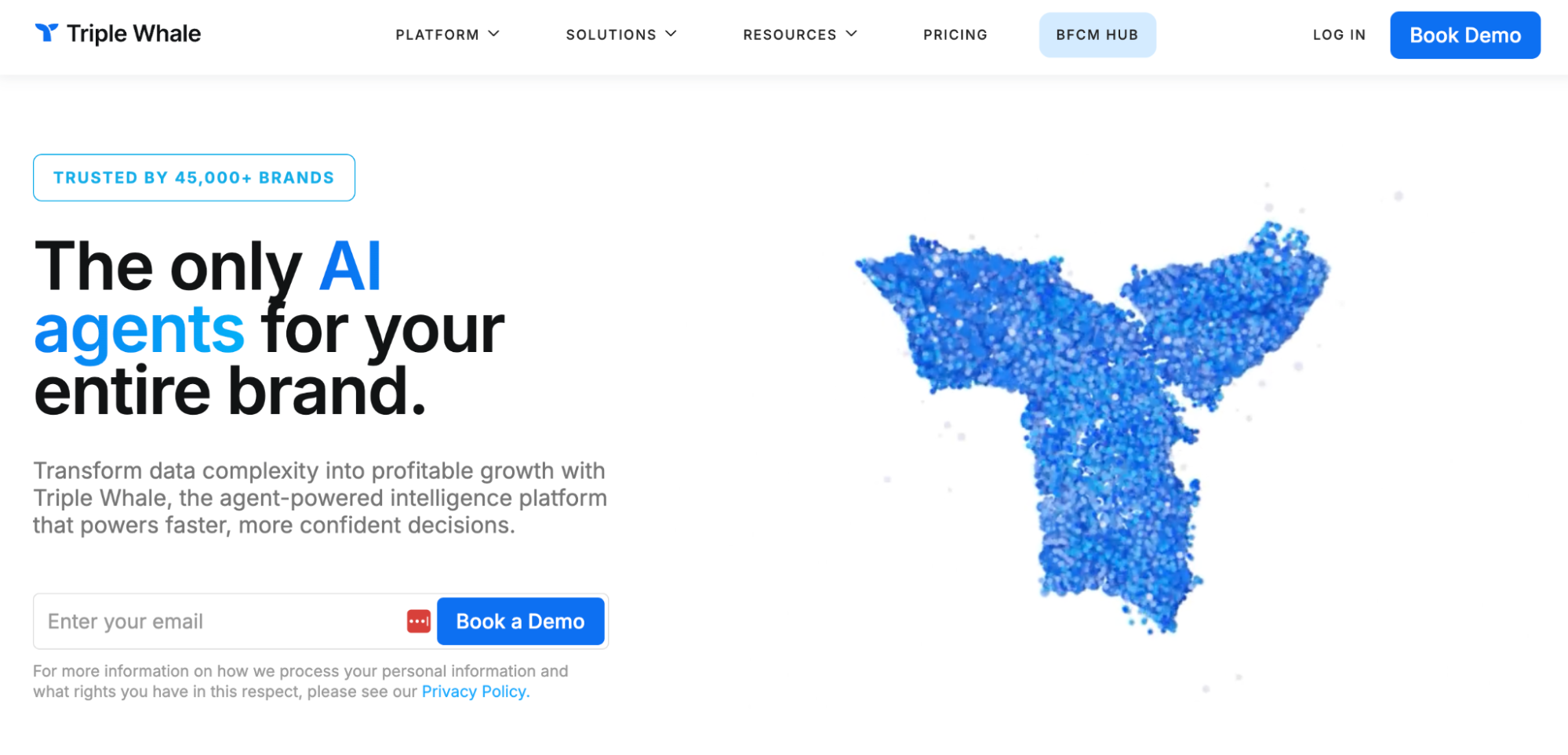
Built for Shopify brands, Triple Whale connects ad spend on Meta, TikTok and Google Ads with orders and revenue. Merchants use its ready dashboards for MER, blended ROAS and cohort insights, which makes daily budget moves clearer and faster for lean teams.
Hyros – best for advanced call and funnel tracking
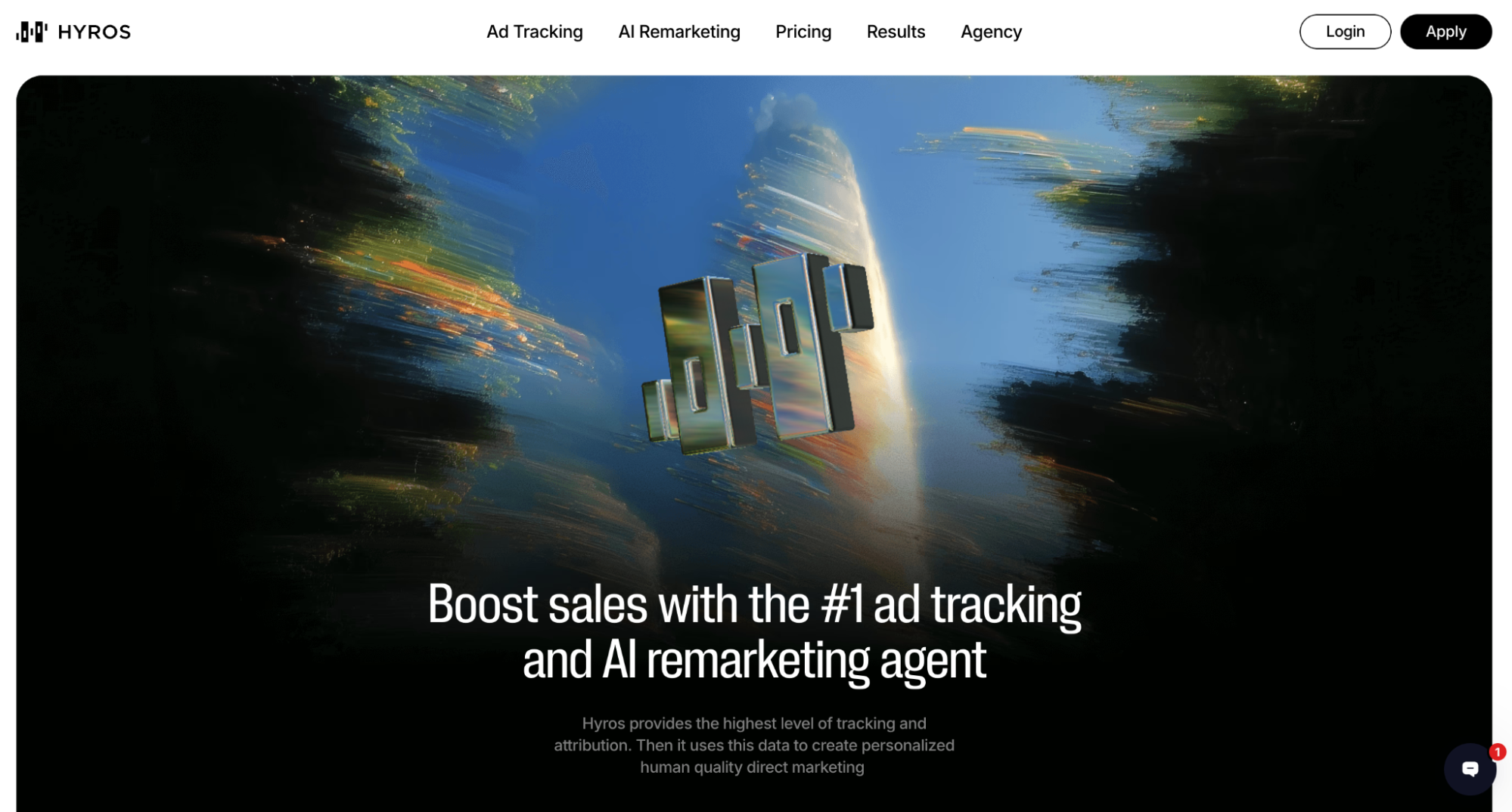
Hyros specializes in complex, high-ticket funnels where phone calls, emails and multi-step checkouts matter. It ties touchpoints back to the exact ad and helps teams attribute revenue across longer consideration cycles without losing the thread.
Attribution and analytics comparison
These point solutions add much-needed clarity, yet they can also create another data silo. Without a unified data model, reporting remains slow and inconsistent. That’s why more brands and agencies adopt an intelligence layer like Funnel to integrate, measure and activate data across the stack.
|
Tool |
Key features |
Best use case |
Pricing |
|
Triple Whale |
Pixel attribution for paid social and search; MER and blended ROAS dashboards |
Shopify-focused ecommerce teams |
Starting from $299/month; usage-based |
|
Hyros |
Call, email and checkout tracking; AI-assisted attribution |
High-ticket or complex funnels with calls |
From $230/month business pricing; Custom agency pricing |
Campaign management and optimization tools
These tools build, target and iterate creative at scale, so bids, budgets and variants update with fewer manual steps. They turn strategy into controlled experiments that lift conversion rates and lower acquisition costs.
VWO – best for accessible website testing
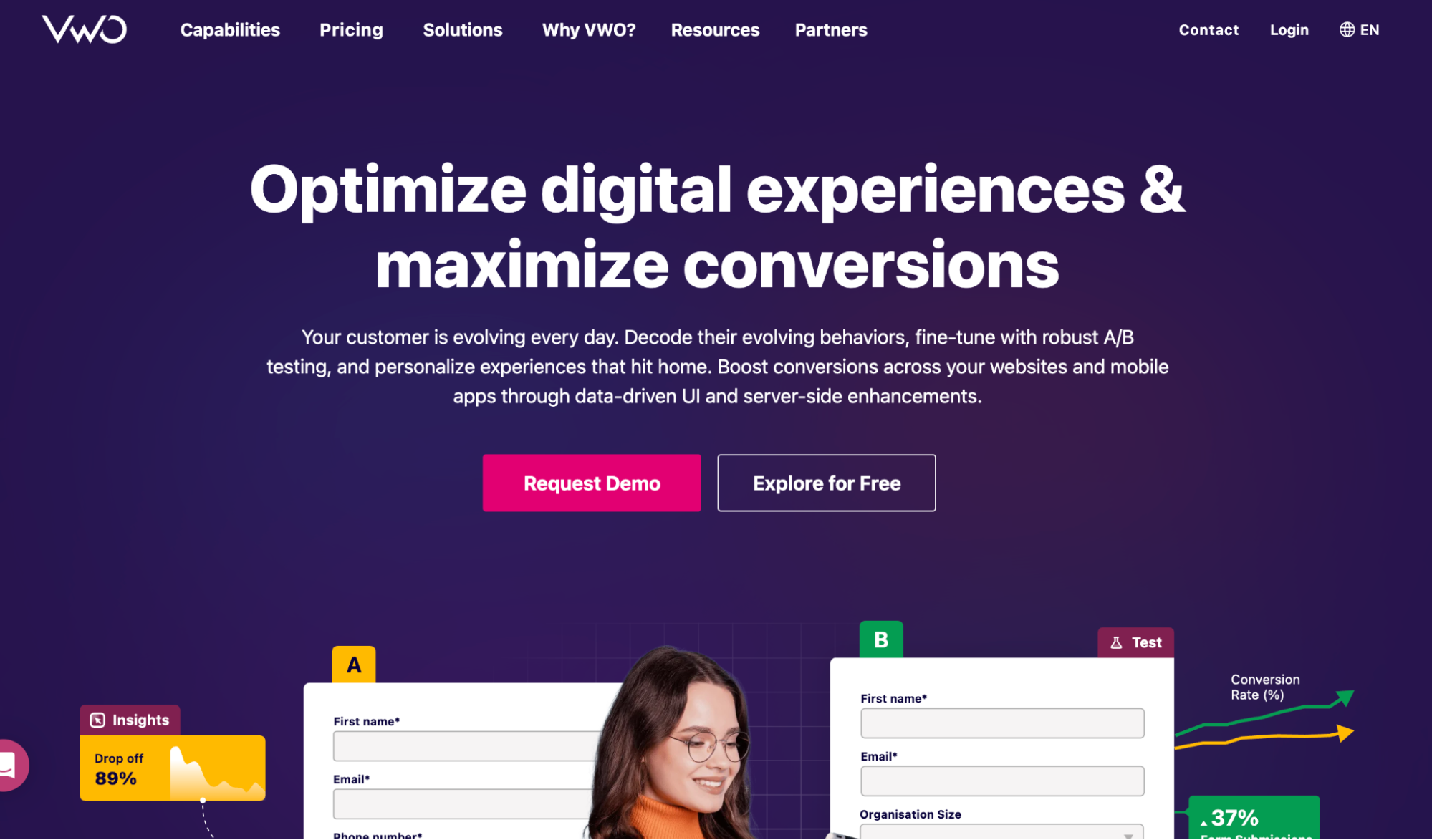
VWO is used by brands like Hyundai and Ubisoft to test and improve digital journeys. It stands out with its visual editor, which lets non-technical marketers change and test page elements without code.
Teams run classic A/B tests on headlines or hero images, then layer heatmaps and recordings to see why results shift. Funnel and path reports spotlight bottlenecks, which helps prioritize experiments with the highest upside. When wins are proven, changes ship quickly because the same interface that runs tests can also deploy variations.
Smartly.io – best for automating paid social campaigns
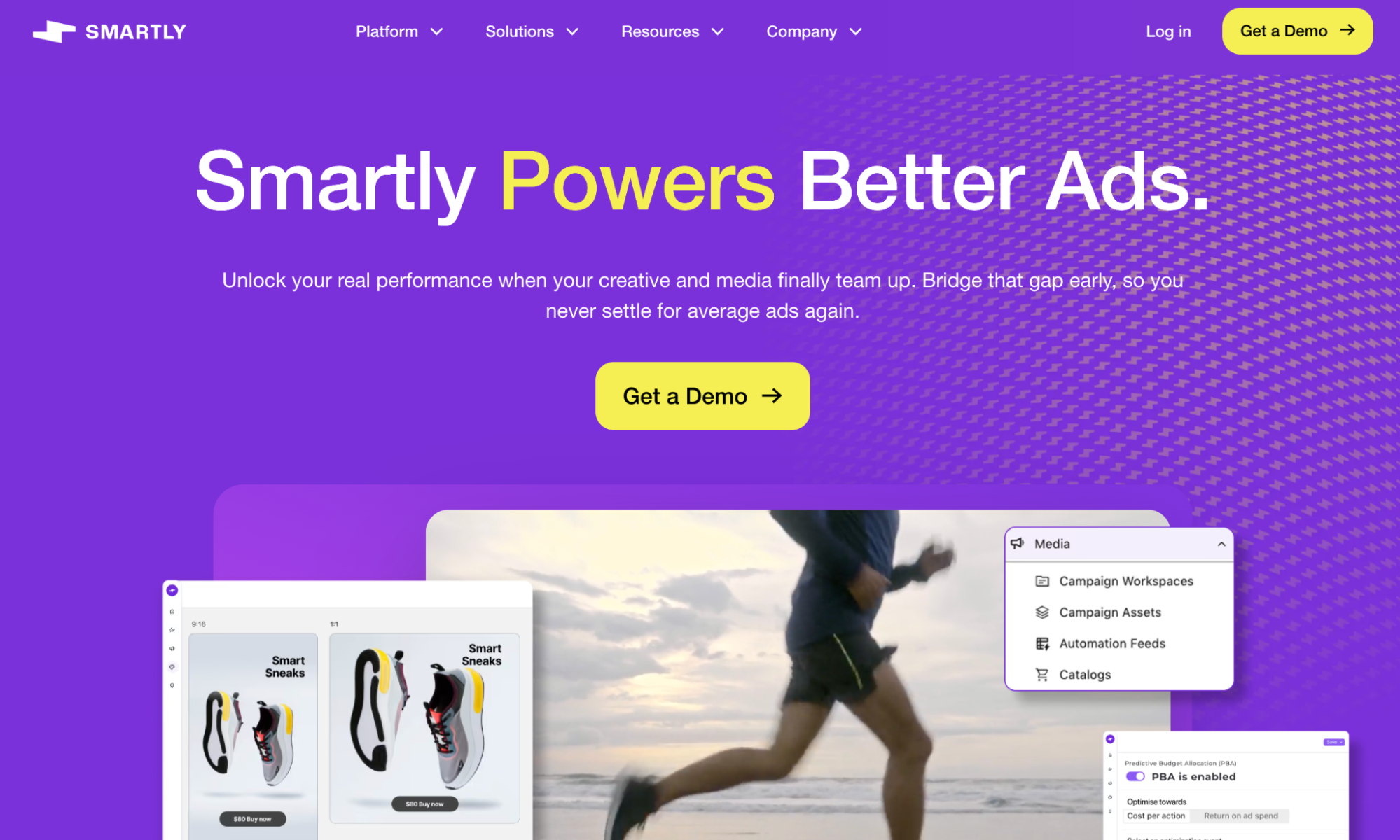
Smartly.io is trusted by brands like L’Oréal and eBay to manage high-volume campaigns across Facebook, Instagram, TikTok and Pinterest. It earns its spot for turning product feeds into hundreds of on-brand ad variations that update automatically as price, stock or images change.
Creative testing compares copy and visuals so you can scale what works while cutting what does not. Teams that juggle frequent promos or large catalogs get the most value because creative and delivery stay in sync.
Campaign management and optimization comparison
Execution tools accelerate testing and scale, yet they often silo performance data by channel and format. Without a unified intelligence layer, results are hard to compare, and reporting slows. Many teams pair these tools with a marketing intelligence layer that standardizes metrics, joins first-party data and feeds clean signals back into testing.
|
Tool |
Key features |
Best use case |
Pricing |
|
VWO |
Visual editor for no-code tests, A/B and multivariate, heatmaps and recordings, conversion funnels |
Conversion rate lift on web journeys without developer time |
From $237/month; free starter plan available |
|
Smartly.io |
Dynamic creative from product feeds, cross-platform budget pacing, creative testing and workflow automation |
High-volume paid social with frequent promos or large catalogs |
Pricing tailored by scale and channels |
Affiliate and partnership platforms
Affiliate and partner programs turn trusted voices into a performance channel. The best tools make it simple to recruit, track and pay partners while giving marketers a clean view of revenue impact across campaigns and channels.
LeadDyno – best for affiliate program tracking and growth
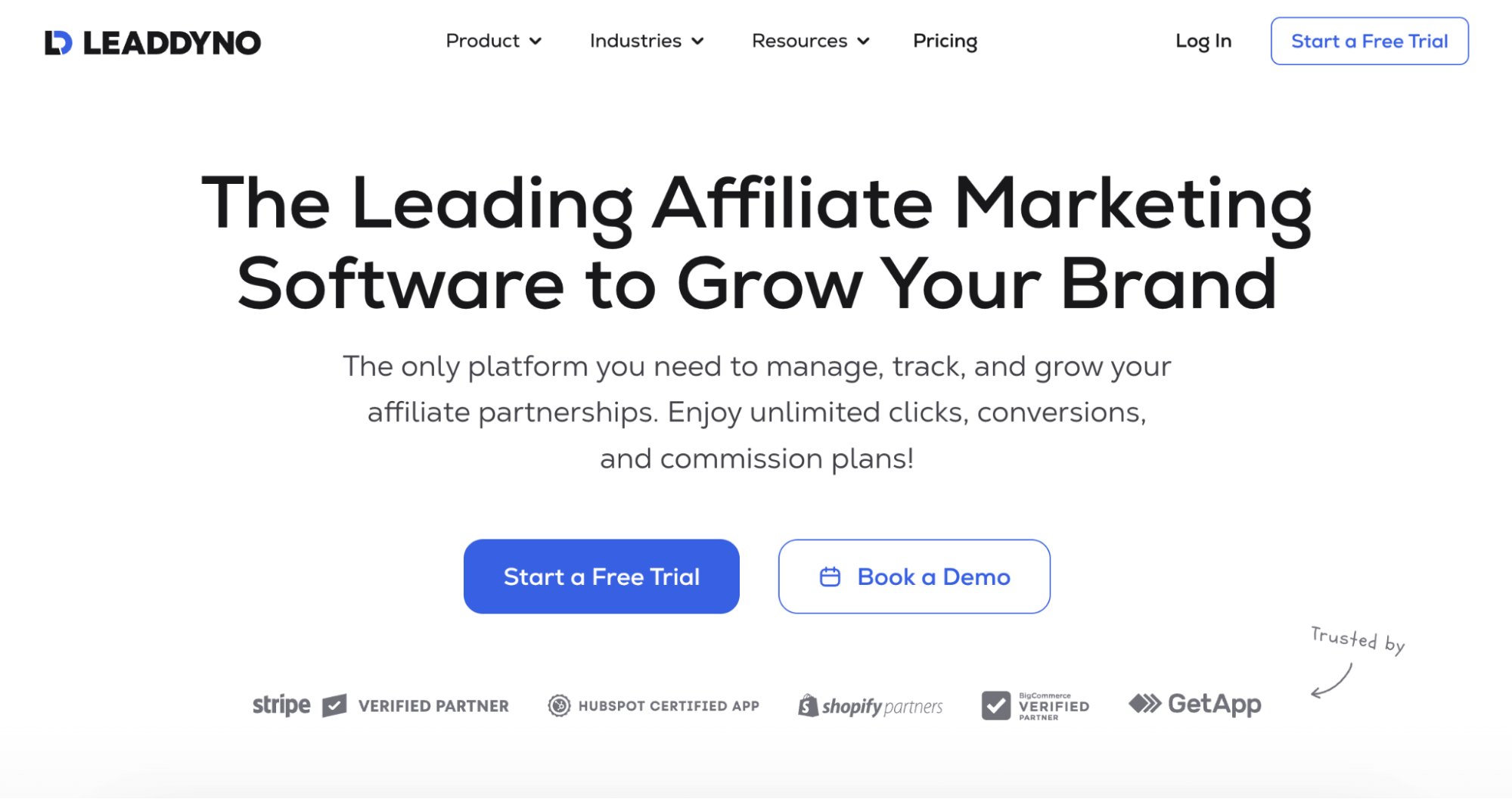
LeadDyno helps brands launch and scale affiliate programs without heavy setup. It stands out for tying partner traffic directly to sales so you can see which creators and campaigns drive revenue. Flexible commission rules and payout automation reduce manual work, while an affiliate dashboard offers unlimited tracking links for promos and bundles.
PartnerStack – best for SaaS companies running affiliate and reseller programs
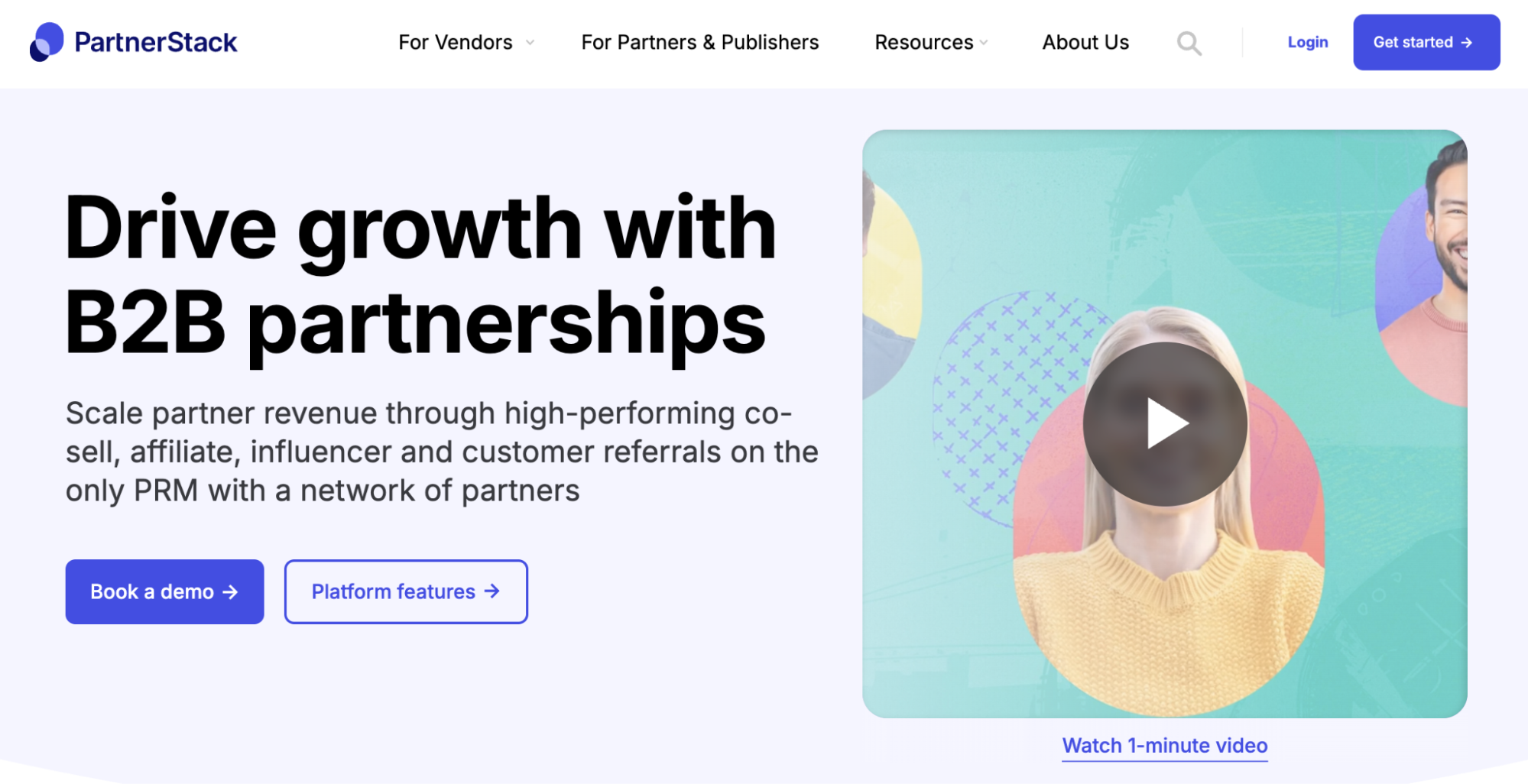
PartnerStack is built for B2B SaaS growth through affiliates, referrals and resellers. Its marketplace lets companies recruit pre-vetted partners fast, then the platform automates onboarding, payouts and compliance so programs scale with fewer bottlenecks. Dashboards attribute revenue by partner type and channel, which helps teams double down on high-value initiatives like solution partners or product-led referrals.
Impact – best for enterprise affiliate and partnership management
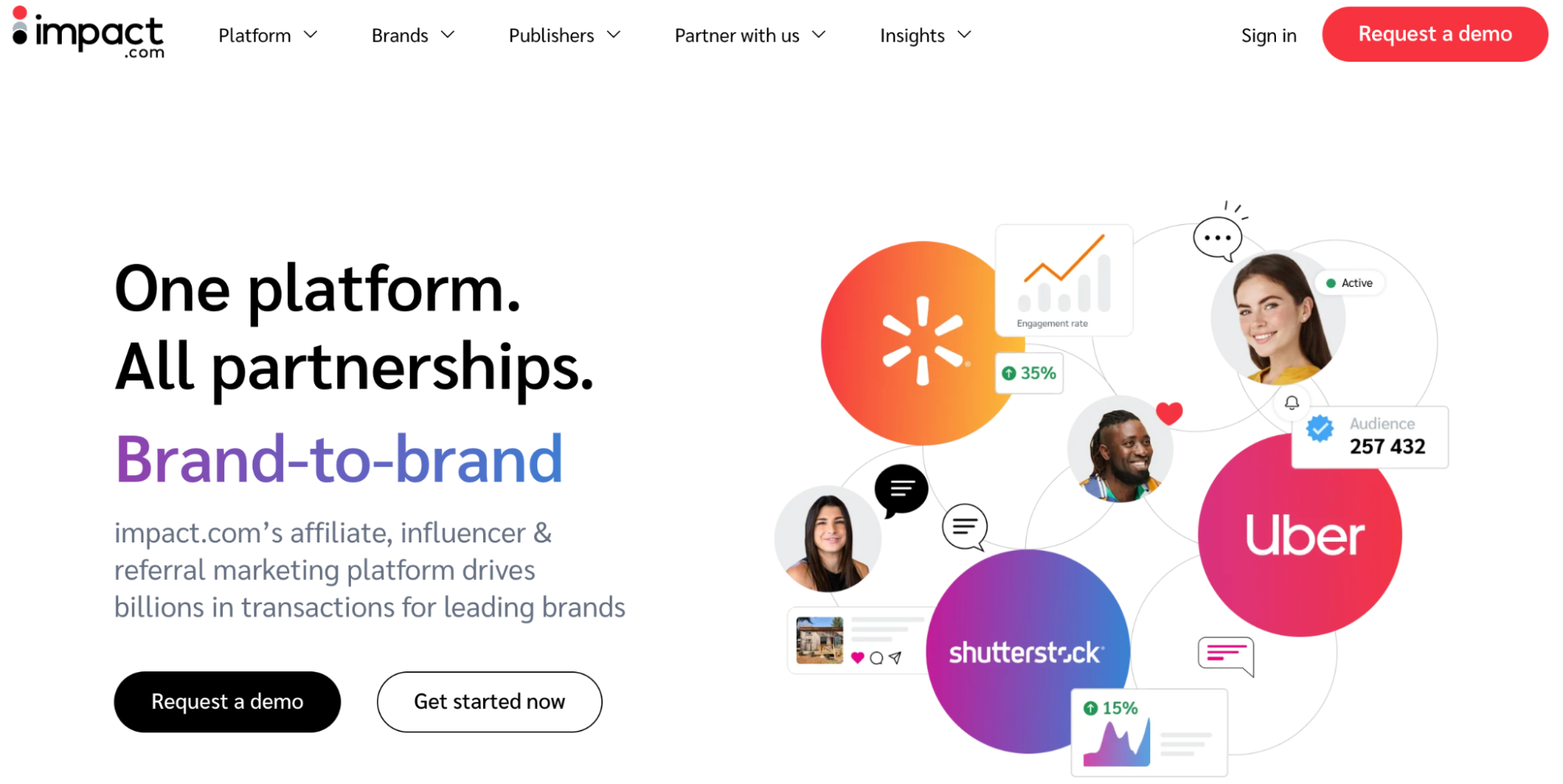
Impact serves enterprises that run complex portfolios across affiliates, influencers, B2B partnerships and mobile data integration capabilities. It centralizes partner discovery, contracting and global payouts, then tracks performance across channels so leaders can compare programs with a single taxonomy.
Affiliate and partnership comparison
Partnership platforms expand reach, yet they often sit apart from ad, web and CRM data. Without a unified model, reporting remains slow and lacks trustworthiness.
|
Tool |
Key features |
Best use case |
Pricing |
|
LeadDyno |
Real-time tracking of clicks, leads and purchases, unlimited affiliate links |
Fast launch and growth of a brand’s affiliate program |
Essential plan from $110/month; 30-day free trial |
|
PartnerStack |
SaaS-focused partner marketplace, automated onboarding and payouts with compliance |
B2B SaaS affiliates, referrals and resellers |
Tiers based on program size |
|
Impact |
Partner discovery and contracts, global payout automation, cross-channel performance tracking |
Enterprise programs across affiliates, influencers and apps |
Pricing by scope and markets |
Audience insights and research tools
These are not strictly performance platforms, but they shape better campaigns. They reveal who your audience is, where they spend time and what drives engagement, so channel plans and creative choices land with the right people.
SimilarWeb – best for competitive traffic intelligence
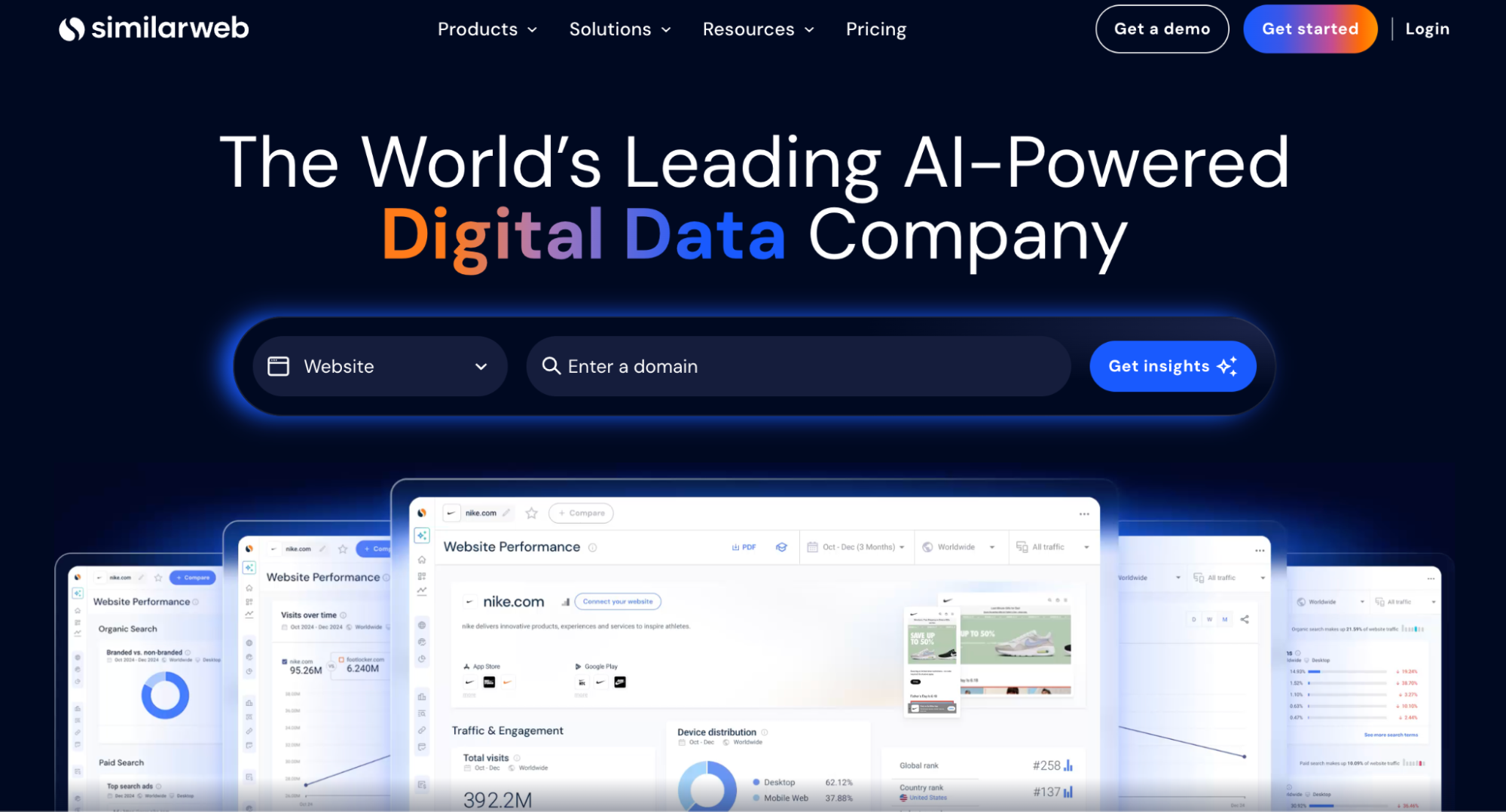
SimilarWeb measures web and app traffic to reveal where visits come from and how users engage. Performance marketers use it to see which channels competitors lean on and how traffic sources shift over time. You can break down traffic by source, compare engagement patterns and benchmark your share against rivals to spot priorities for search, social and partnerships.
Nielsen – best for cross-media audience measurement
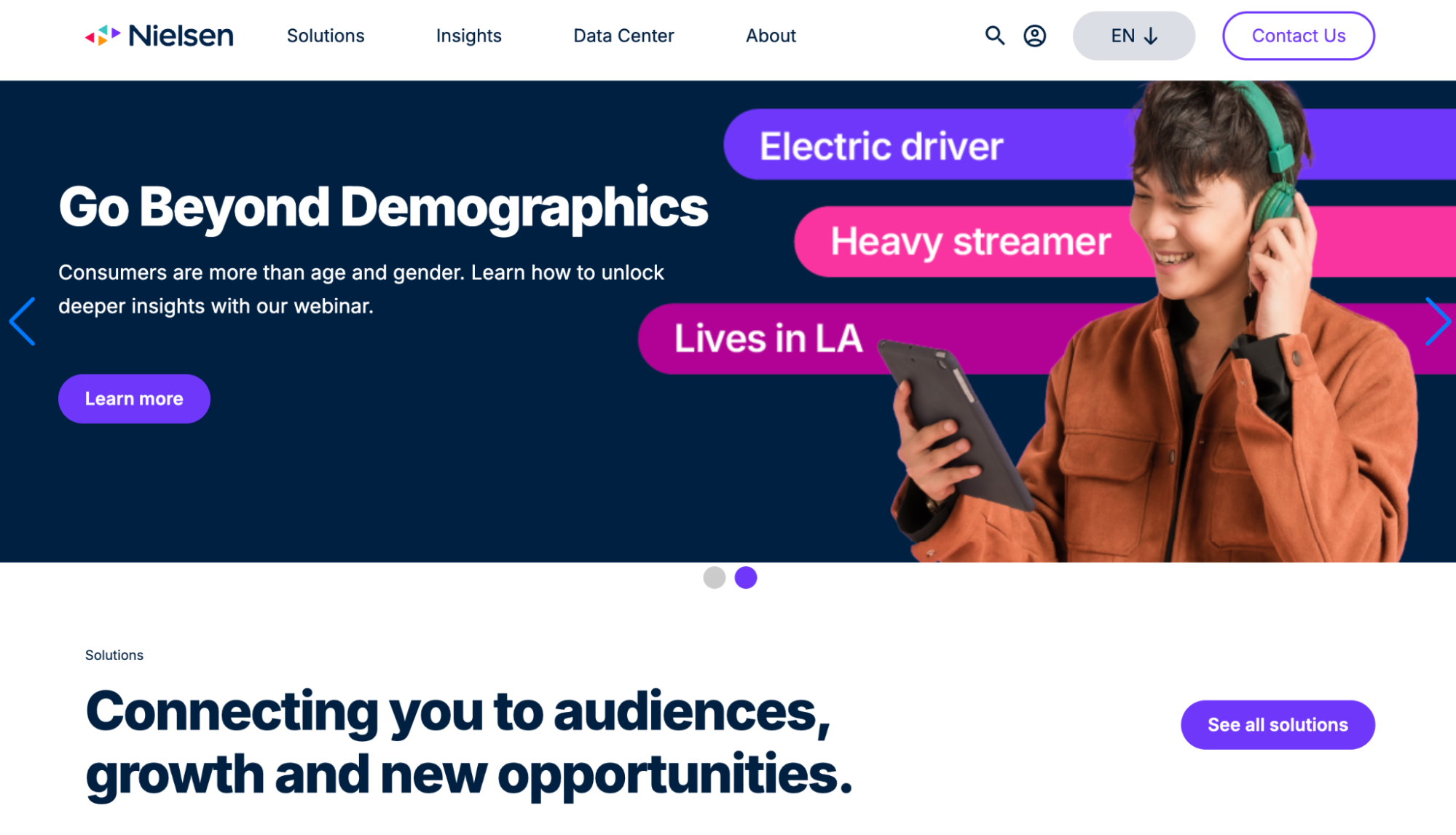
Nielsen measures audiences across TV, streaming, digital and radio so media planners can follow attention, not assumptions. It surfaces reach and frequency by channel, plus demographic and household profiles, which helps teams plan budgets around real viewing and listening habits. Scenario tools model how shifting spend between TV, streaming and digital affects outcomes so that you can balance upper- and lower-funnel impact.
Audience insights and research comparison
Audience tools guide strategy, but you need a complete view of marketing data to see where they fit into your performance puzzle. Otherwise, it’s easy to fall into the trap of putting too much weight on some channels and overlooking the background context that’s really driving user behavior. Unifying these inputs with the rest of your data sources makes planning faster and measurement more trustworthy.
|
Tool |
Key features |
Best use case |
Pricing |
|
SimilarWeb |
Source-level traffic splits for organic, paid, social, referrals; engagement patterns and audience attributes |
Competitive research and channel planning for web and app growth |
Costs depend on traffic source |
|
Nielsen |
Cross-media reach and frequency; scenario modeling for channel mix |
Cross-channel budget planning across TV, streaming, digital and radio |
Contact sales; pricing based on markets and products |
Website analytics tools
Website analytics tools provide a dependable baseline for how people find, navigate and convert on your site. They surface opportunities and issues fast, then hand clean signals to the rest of your stack. Used alongside independent measurement and first-party data, they help you decide what to test next.
Google Analytics – best for tracking website performance and user behavior
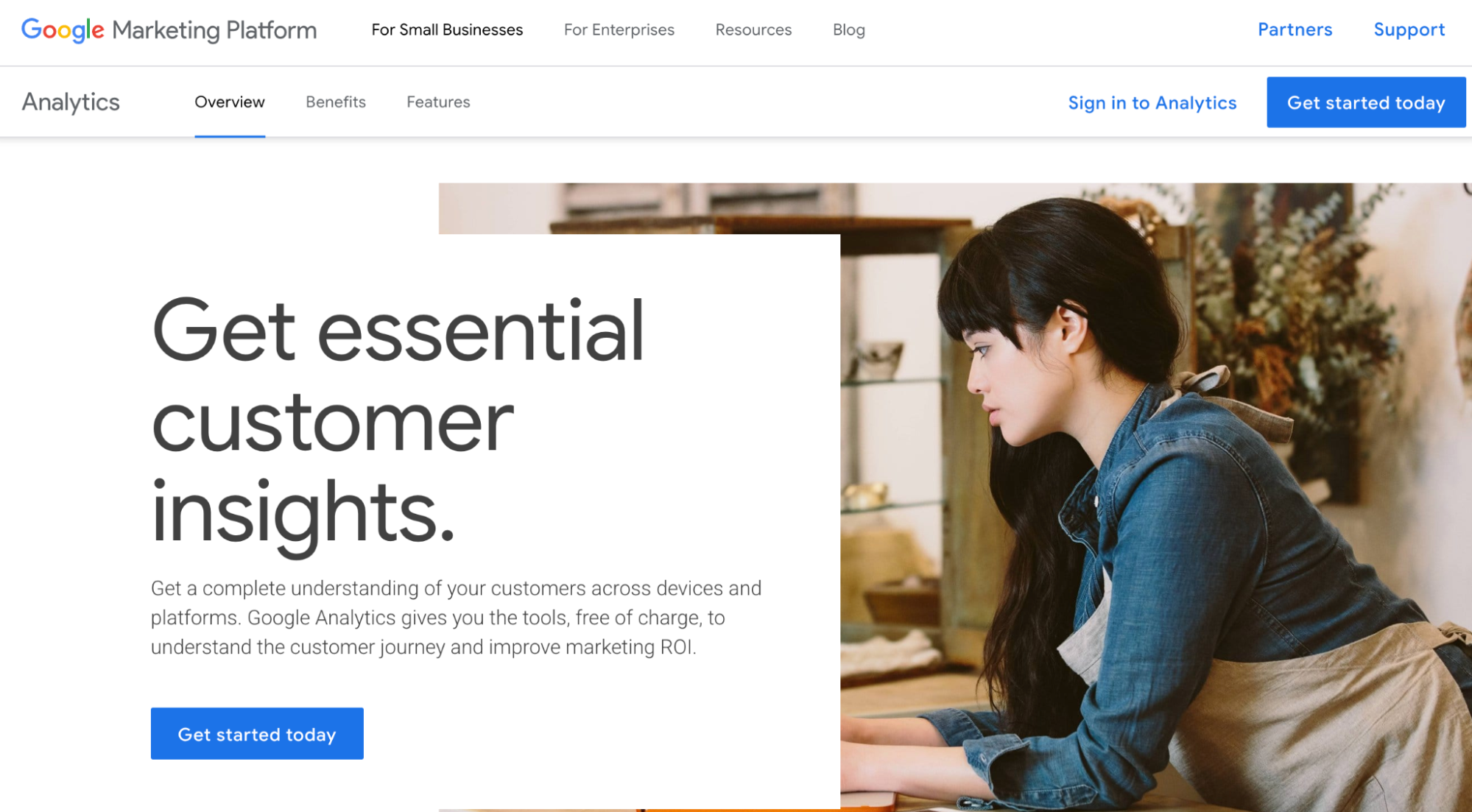
Google Analytics remains the default baseline for web and app reporting. GA4’s event model captures journeys across devices, while standard and ad hoc reports show where visitors come from and how they move through key pages. That said, attribution inside Google Analytics is limited in a privacy-first world. Many teams pair GA with independent measurement platforms so channel comparisons and ROI hold up in reviews.
Google Search Console – best for monitoring site health and search visibility
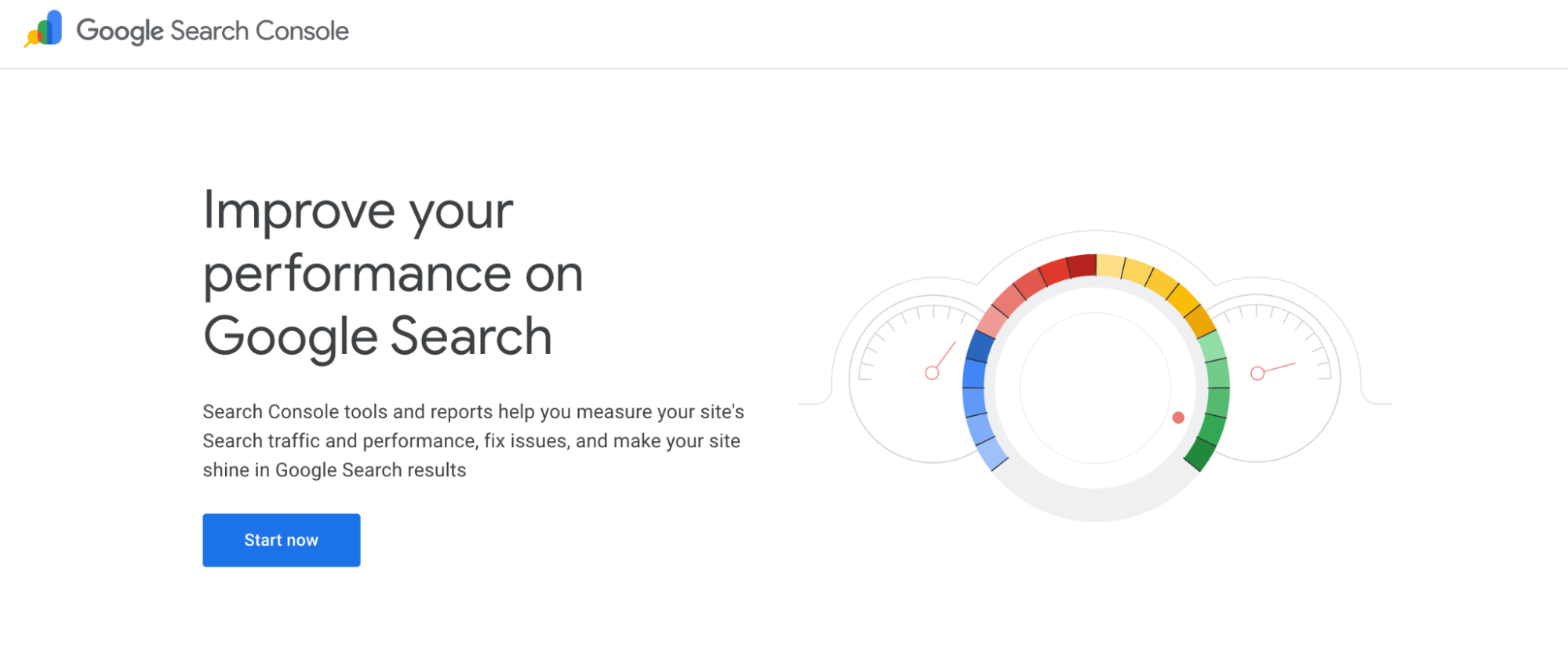
Search Console focuses on visibility in Google Search. It shows queries, clicks, impressions and average position, plus index coverage, crawl status and Core Web Vitals. Marketers use it to diagnose drops, fix indexing and align content with search demand. It is free and purpose-built for search diagnostics, so treat it as a complement to analytics and BI rather than a replacement.
Semrush – best for SEO measurement and competitive research
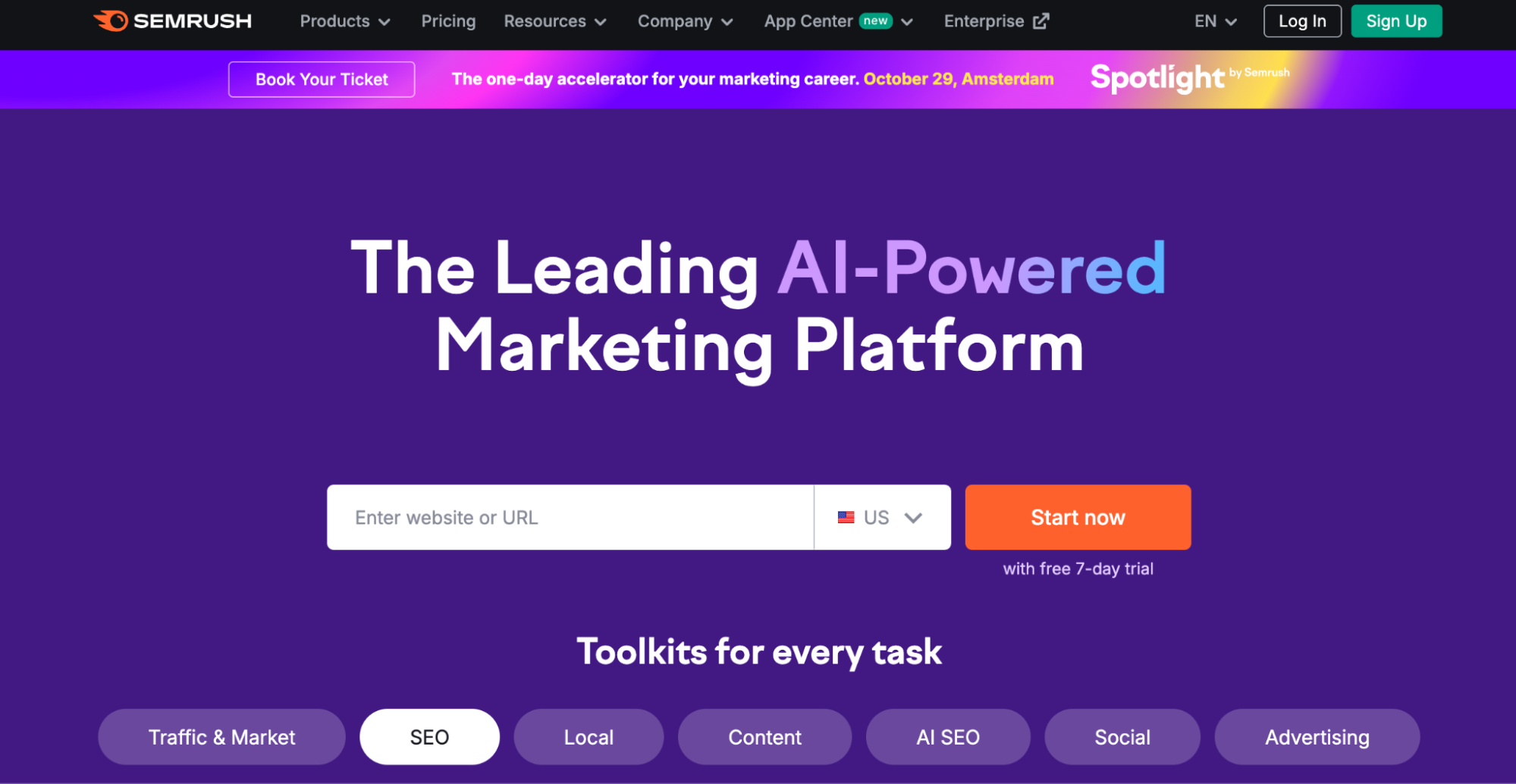
Semrush helps teams measure SEO (search engine optimization) performance and plan where to compete. It offers keyword research, rank tracking, site audits and competitive intelligence across organic and paid search. Content and landing page teams use its data to prioritize topics, track KPI movement and spot gaps versus rivals. It is not a site analytics replacement, but it strengthens the planning loop that feeds your experiments.
Website analytics comparison
Analytics and search tools answer critical “what happened” questions, but they only shed light on one part of the customer journey. Also, with the rise of AI search and conversational queries shifting how search happens, analyzing search results in a silo is risky. Unifying these signals with other types of marketing data in a centralized data hub helps you understand search trends more clearly.
|
Tool |
Key features |
Best use case |
Pricing |
|
Google Analytics |
Event-based tracking across web and app, Google Ads integration and basic attribution |
Baseline web performance and funnel analysis with a lightweight setup |
Free core product, GA4 360 costs $12,500/month |
|
Google Search Console |
Query and page performance in Search, index coverage and crawl status, Core Web Vitals diagnostics |
SEO visibility and site health monitoring for Google Search |
Free |
|
Semrush |
Keyword research and difficulty, rank tracking, site audits, competitive and SERP analysis |
SEO measurement, topic planning and competitive research |
From $139/month; tiered plans by features and limits |
Customer relationship management (CRM)
CRMs connect lead capture to revenue so marketers can see how campaigns progress through the pipeline. The right platform aligns marketing efforts and sales, automates follow-up and shows which channels influence closed-won deals.
HubSpot – best for connecting marketing and sales data
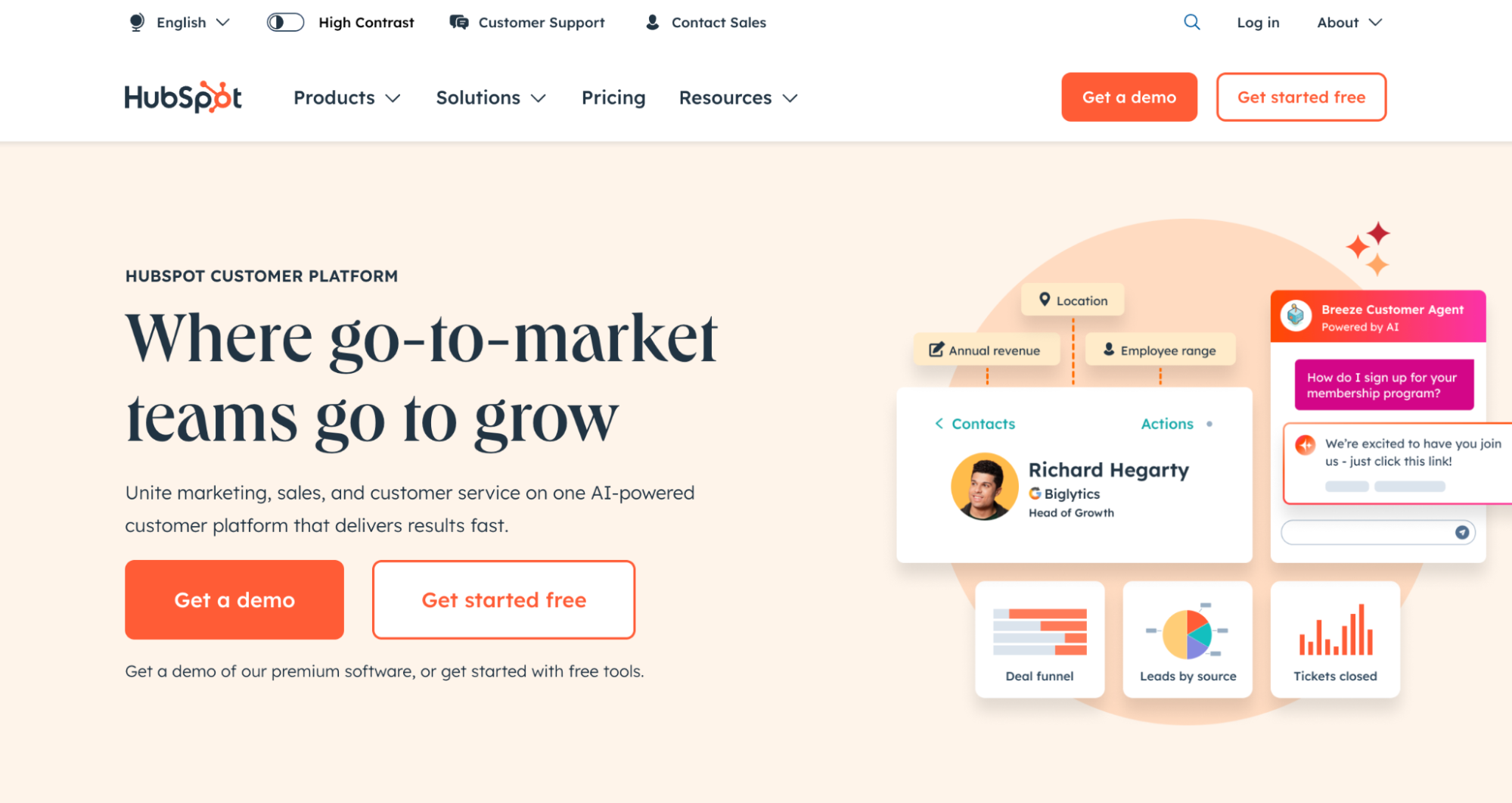
HubSpot combines a CRM and Marketing Hub, allowing teams to follow a lead from first ad click through nurturing and handoff to sales inside one platform. Automated sequences are triggered by form fills or ad events. The landing page and blog builder include SEO recommendations. Lead scoring and attribution models help teams prioritize outreach and identify which campaigns drive revenue.
Salesforce – best for enterprise CRM and complex sales funnels
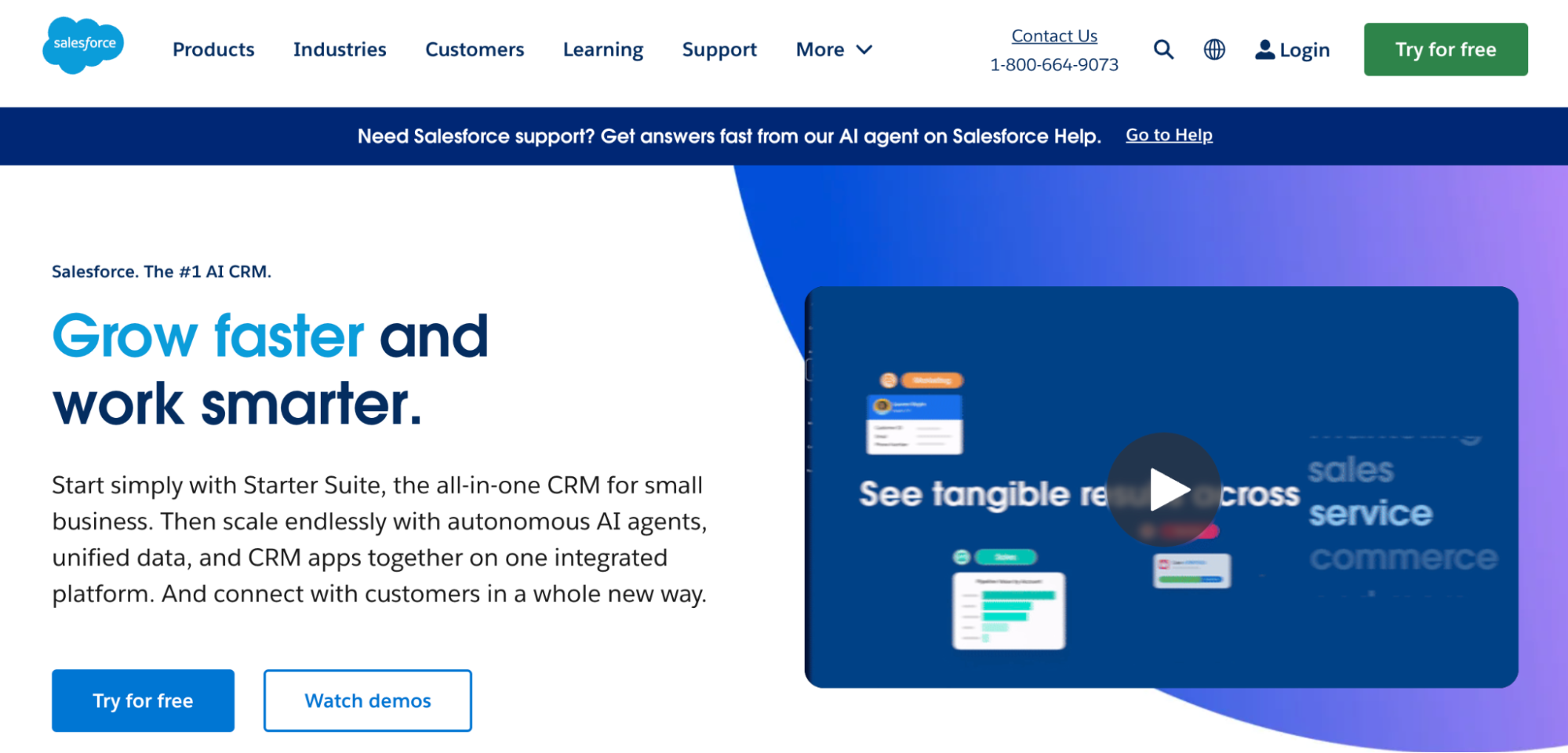
Salesforce is a good fit for enterprises with longer cycles and multi-touch journeys. It connects campaign performance data to advanced pipelines and custom reporting. Teams build attribution dashboards tied to revenue, forecast with Einstein and integrate deeply with ad platforms and data warehouses to standardize fields across markets and business units.
CRM comparison
CRM data is useful because you own it. However, most companies don’t have enough first-party data in their CRMs to make confident decisions. It’s more valuable when combined with other marketing data sources so you can look at aggregate trends and predict future behavior to help optimize your performance budget.
|
Tool |
Key features |
Best use case |
Pricing |
|
HubSpot |
Ads to deal tracking, automated email sequences, landing pages and blog with SEO guidance |
SMB to midmarket teams aligning marketing and sales in one platform |
Starts at $45/user/month |
|
Salesforce |
Custom attribution dashboards tied to revenue, Einstein forecasting, integrations with ad platforms and data warehouses |
Enterprises with complex pipelines and long sales cycles |
Starts at $25/user/month |
Email marketing
Email turns first-party data into revenue. The right platforms help teams build, segment and automate messages, then tie engagement back to sales so budgets move with confidence.
Mailchimp – best for accessible email marketing and automation

Mailchimp enhances performance workflows across email and connected marketing channels. Beginners get a visual editor and templates, while growing teams unlock automation journeys and AI-assisted content to personalize at scale. Use it to launch quickly, test often and keep reporting simple for stakeholders.
Klaviyo – best for e-commerce email and SMS marketing
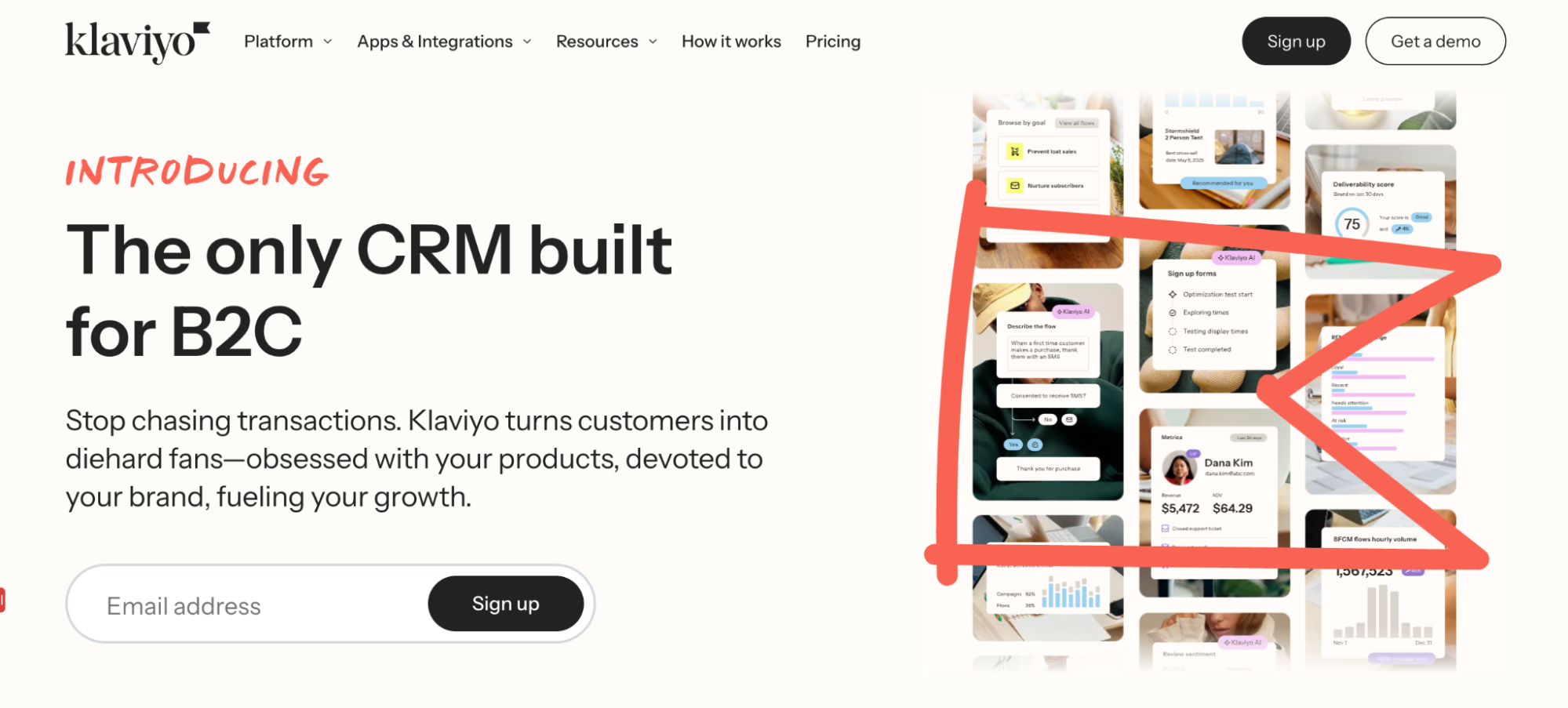
Klaviyo is built for ecommerce brands that want email and SMS tied directly to revenue. Its deep Shopify integration triggers messages based on real shopper behavior, such as browse abandonment and post-purchase moments. Advanced segmentation by order history or lifetime value keeps offers relevant. Native reporting shows how campaigns flow and audiences contribute to sales, so teams can raise or lower spend with clarity.
Email marketing comparison
Email platforms excel at engagement, yet these tools are just one more siloed tool without data unification. The problem is that you’re personalizing email campaigns and segmenting customers in a vacuum. A central marketing intelligence platform lets you see how email marketing efforts relate to the rest of the funnel, so you can optimize smarter.
|
Tool |
Key features |
Best use case |
Pricing |
|
Mailchimp |
Visual editor and templates; automation journeys with behavioral triggers |
SMBs and lean teams that need accessible email automation |
Starts from $20/month for the Standard plan;14-day trial |
|
Klaviyo |
Real-time Shopify integration; revenue-linked reporting and segmentation by LTV |
Ecommerce brands running coordinated email and SMS |
Starts at $45/month for email; free plan if you have under 250 active profiles |
Business intelligence
Business intelligence turns raw signals into decisions. These tools help teams plan, analyze and share performance in the language of revenue so budgets move with confidence.
Display & Video 360 (DV360) – best for enterprise-level media buying and campaign management

DV360 sits inside Google Marketing Platform and supports planning through optimization for display, video, YouTube and more. Built-in reporting and actionable insights into your audience reveal where attention is moving, so budgets can shift quickly. Used alongside your analytics and data warehouse, DV360 helps translate media plans into measurable outcomes across marketing channels.
Power BI – best for connecting marketing data with business intelligence
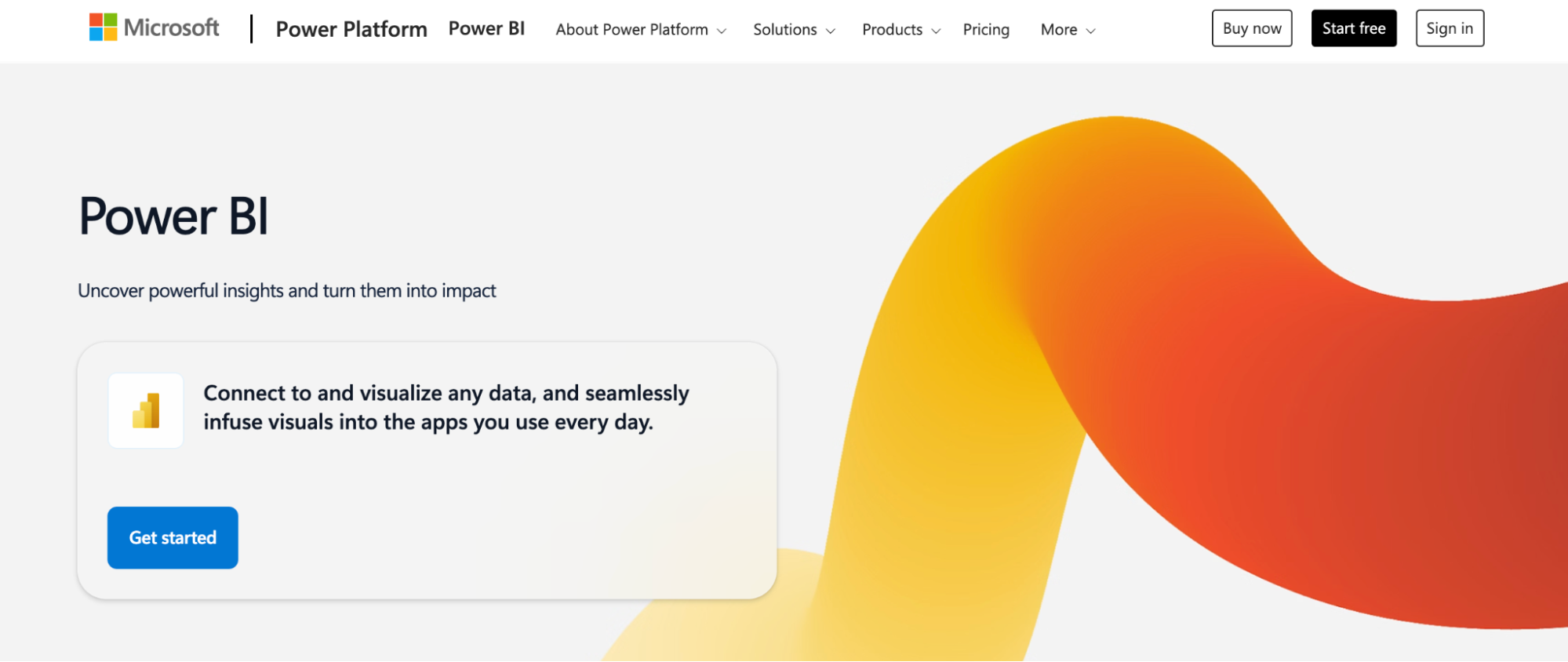
Power BI connects marketing data to the wider business. You can model spend and outcomes, publish interactive dashboards and share secure workspaces with finance and leadership. With hundreds of connectors and strong warehouse support, teams build a single source of truth and drill from high-level KPIs to campaign and creative details.
Business intelligence comparison
BI and buying platforms are powerful, yet they rely on clean inputs. Teams often outgrow lightweight plugins at scale, while some enterprise suites add complexity or keep data inside a single ecosystem. A unified marketing data layer standardizes key metrics and feeds trustworthy signals into both.
|
Tool |
Key features |
Best use case |
Pricing |
|
DV360 |
Media planning and buying across display, video and YouTube, machine learning for pacing and bids |
Enterprise teams running cross-channel media with shared workflows |
Part of the larger Google Marketing Platform; contact sales for a quote |
|
Power BI |
Warehouse and app connectors, semantic models and DAX, interactive dashboards and sharing |
Unifying marketing efforts with finance and ops in one analytics layer |
Free version included in Microsoft Fabric free account; Paid plans starting from $14/user/month |
Data visualization
Data visualization turns raw metrics into stories teams can act on. The right tools make performance clear for stakeholders, speed up decisions and keep everyone aligned on what to test next.
Looker Studio – best for free, flexible marketing dashboards
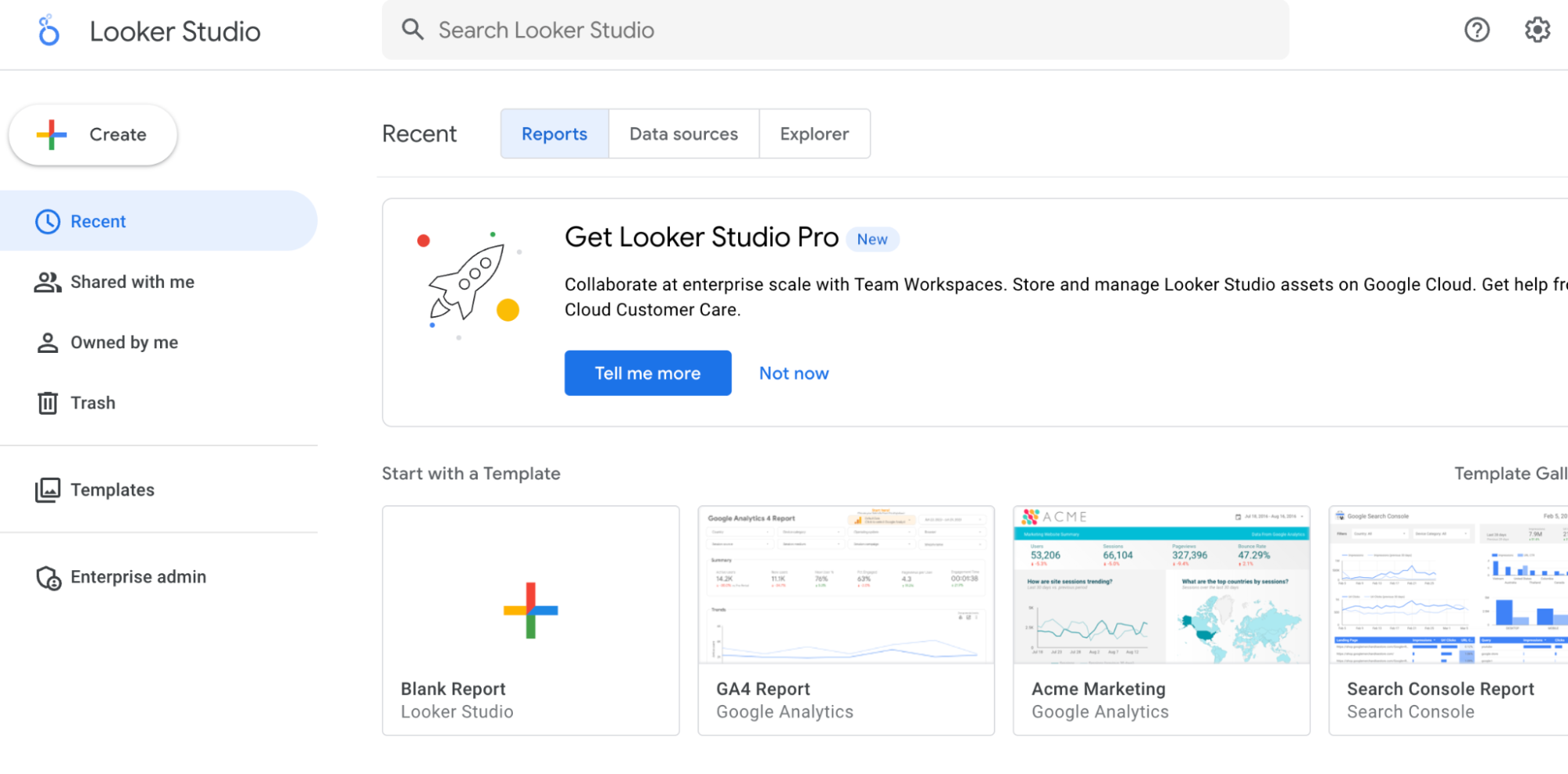
Formerly Google Data Studio, Looker Studio lets beginners build useful dashboards fast while giving advanced users room to customize. You can connect to 800+ data sets from 700+ connectors and share reports with a link. It’s ideal for quick views of marketing channel performance, landing page health and top-line KPIs.
When you’re ready to graduate from the free version, you can scale up to Looker Studio Pro or Looker. Not sure which option is right for you? Check out our comparison, which breaks down each tool in detail.
Tableau – best for advanced data visualization and analytics
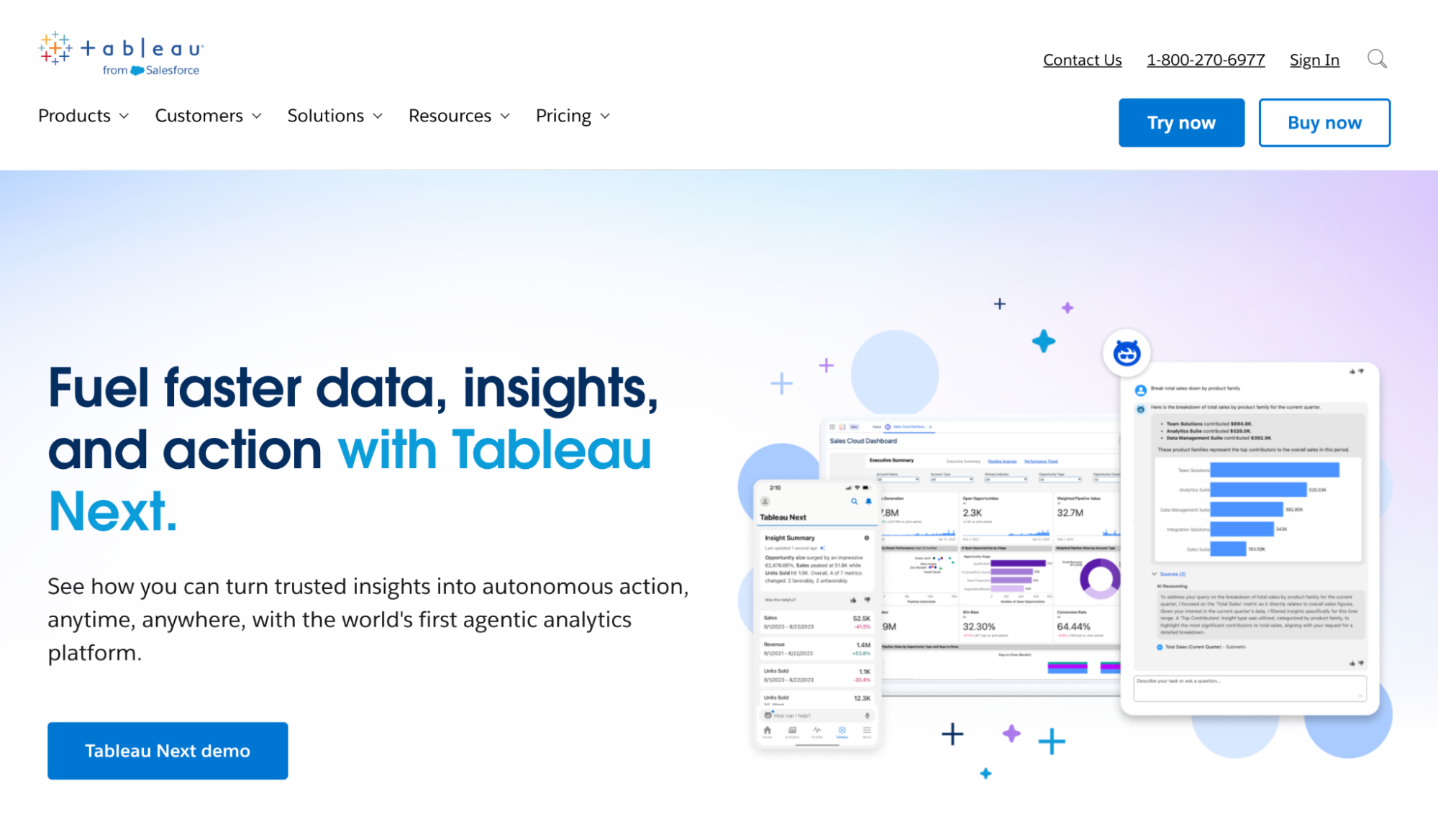
Enterprises use Tableau to explore and share marketing data. Drag-and-drop dashboards with interactive filters help teams move from KPIs to the campaigns and creatives behind them. It also blends marketing efforts with finance and ops to show the business impact of spend.
Data visualization comparison
Visualization makes insights visible, but charts are only as good as the inputs. A unified marketing data layer standardizes metrics and ensures Looker Studio and Tableau are fed clean, trustworthy signals.
|
Tool |
Key features |
Best use case |
Pricing |
|
Looker Studio |
Free dashboarding, wide connector library, easy sharing and embedding, basic calculations |
Quick, flexible marketing dashboards without heavy setup |
Free core product; Pro starts at $9/user/project/month and adds admin and SLAs |
|
Tableau |
Interactive dashboards, native app and warehouse connectors, strong data blending and governance |
Enterprise-level visual analytics across marketing, finance and ops |
Subscription by role |
All-in-one marketing intelligence platform
While most of these tools tackle a specific slice of performance marketing (be it analytics, attribution or email), Funnel is different. It’s not just another tool. It’s the platform that makes all the other tools useful.
Funnel is a marketing intelligence platform designed to unify your data and power the entire performance workflow. It solves the problems that are inherent to data fragmentation by consolidating and standardizing marketing data from 500+ sources into a secure platform that connects with all your destinations.
Funnel - Best for complex multi-client data needs
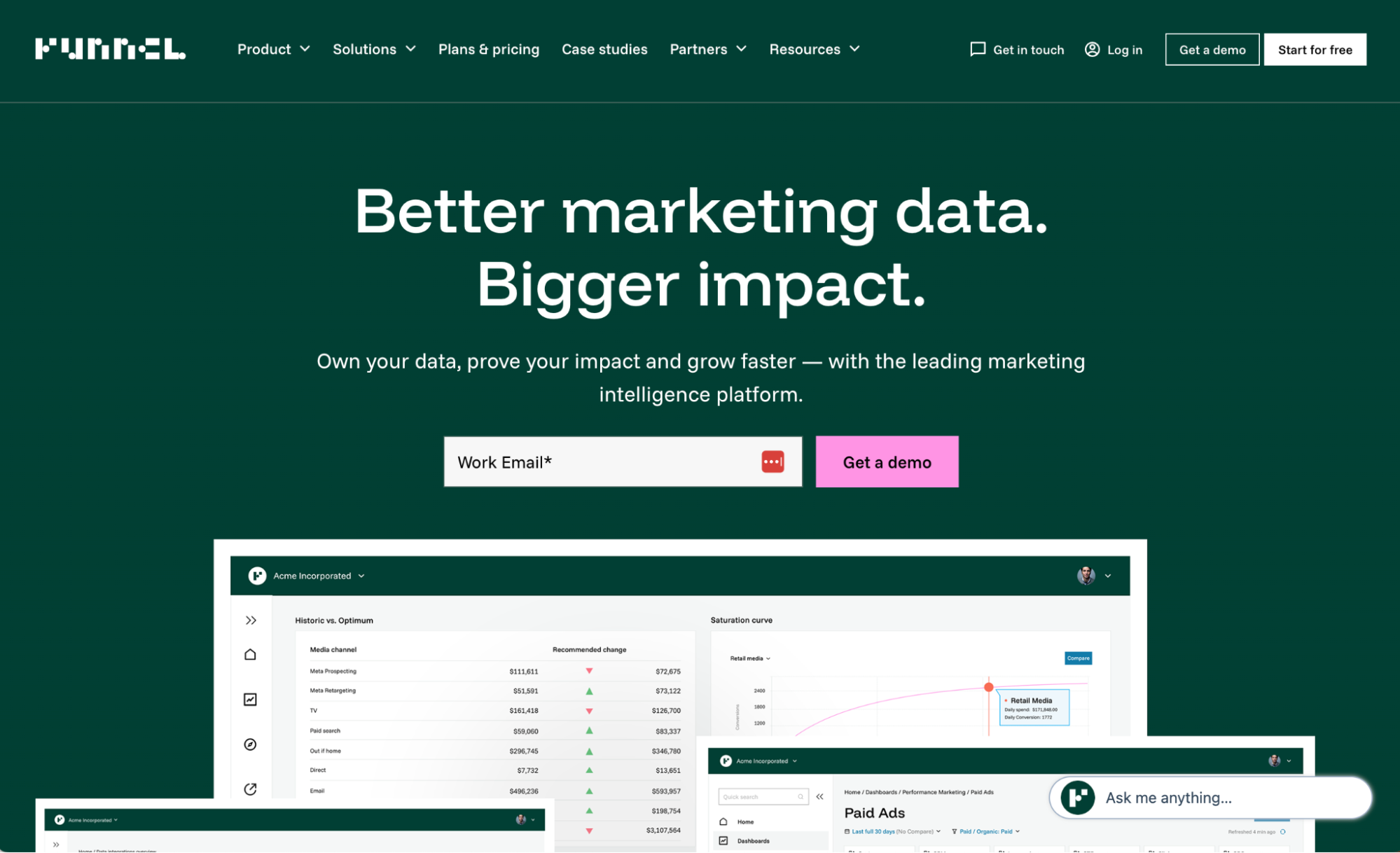
Funnel eliminates manual pulling, cleaning and formatting, then scales reporting for brands and agencies, with no caps on clients or users. Teams use no-code modeling to create consistent metrics, normalize currencies and UTMs and export to warehouses and BI. Funnel Portals let you share secure, branded dashboards with client-side filters, replacing static PDFs and slow email chains.
Funnel goes beyond basic reporting. Today, it powers everything from data integration capabilities to scalable reporting. The platform is evolving into a complete marketing intelligence suite, with measurement (MMM, attribution, incrementality), media planning and data activation via conversion APIs on the roadmap. The goal is clear: to provide marketers with a single operating system for performance marketing.
If you’ve outgrown spreadsheets and siloed tools, Funnel helps you transform complex marketing data into clear, actionable intelligence, so you can measure, plan and optimize with confidence. Book a demo today.
Your guide to performance marketing FAQs
Below are quick answers to common questions performance marketers ask while building their stack.
What is a KPI in a performance marketing platform?
Key performance indicators are the metrics you choose to judge results. Common KPIs include conversion rate, cost per acquisition, return on ad spend (ROAS) and customer lifetime value. Define them before launch, tie them to business goals and adjust budget and channel mix accordingly.
Is performance marketing the same as digital marketing?
Digital marketing is the broad umbrella for online promotion. Performance marketing focuses on measurable outcomes tied to spend. Every performance campaign is digital, yet not all marketing efforts are performance-based. Example: brand awareness from your video equals digital; pay-per-click with tracked conversions equals performance.
What is a performance marketing channel?
Marketing channels where advertisers pay for outcomes rather than impressions are performance marketing channels. Examples include search ads, paid social, affiliate networks and email. Each channel connects spend to clicks, leads or sales.
Which tools integrate best with data warehouses and BI tools?
Funnel, Improvado and Supermetrics connect marketing data to warehouses like BigQuery, Snowflake and Redshift, and to BI tools such as Power BI or Tableau. At scale, plugin pulls can strain, so some teams outgrow Supermetrics. Adverity can feel complex and slow. Salesforce MI Cloud fits enterprises and the Salesforce ecosystem.
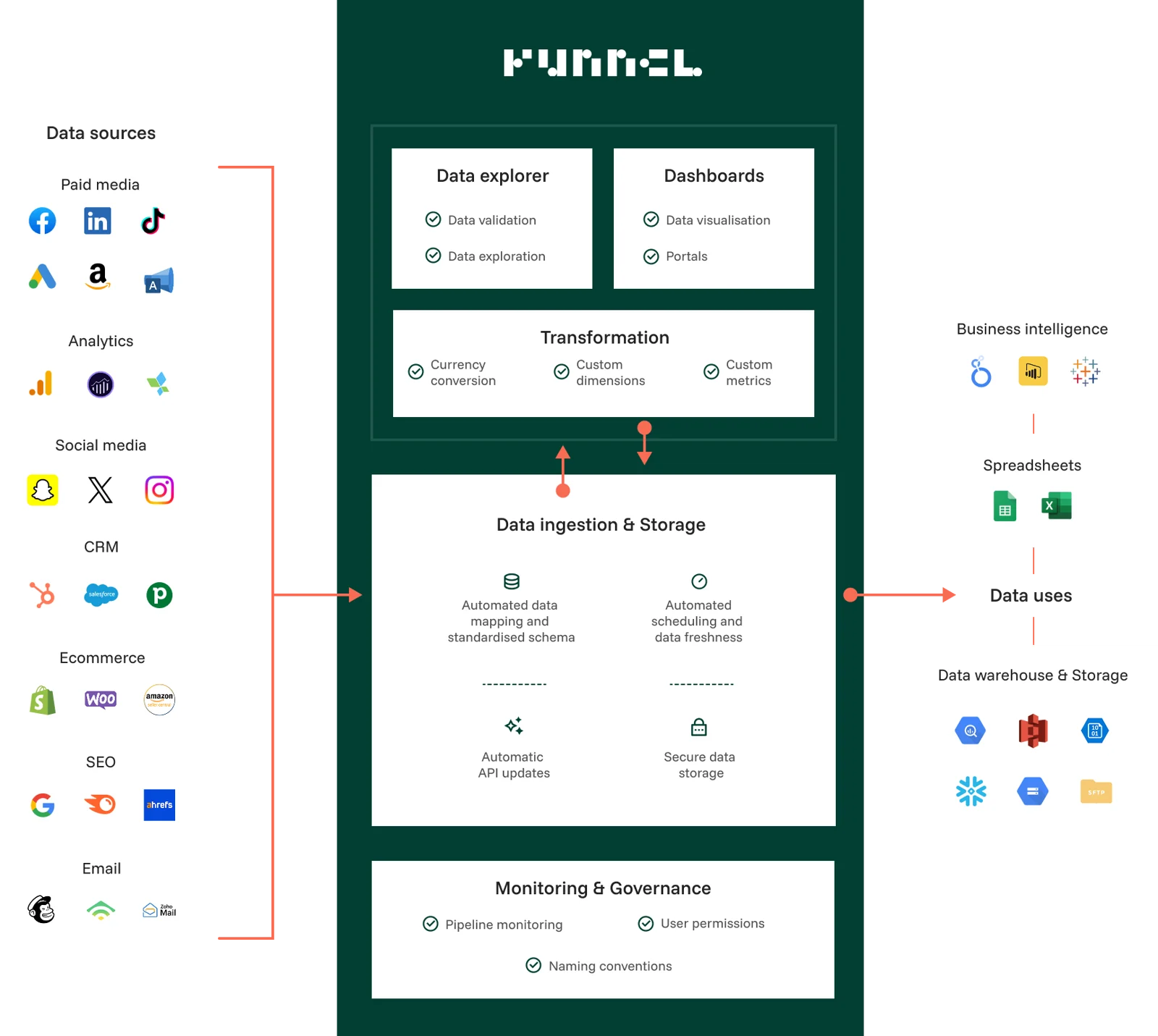
What is a performance marketing agency?
An agency that manages campaigns using pay-for-performance models. It specializes in channels like search, social, display and affiliates. The focus is on KPIs such as conversions and cost per acquisition. Agencies help allocate spend, track data and scale what works while reducing waste.
Why invest in a marketing intelligence platform this year?
A marketing intelligence platform that unifies your marketing data replaces manual reporting with automated dashboards and centralizes performance data from Google Ads, social and email in one place. This solution makes channel comparisons easier and reveals what to scale. See how Funnel helps teams prove ROI, guide budgets and free up time for marketing strategies in 2026 with confidence.
-
Written by Christopher Van Mossevelde
Head of Content at Funnel, Chris has 20+ years of experience in marketing and communications.
